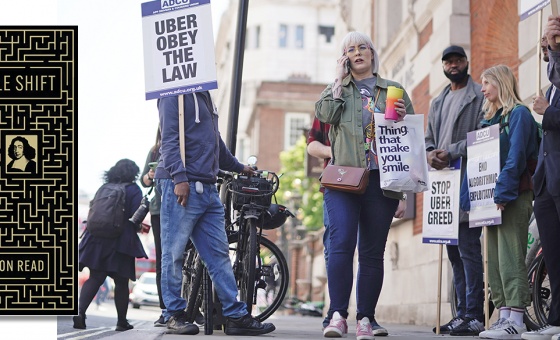This is the last article you can read this month
You can read more article this month
You can read more articles this month
Sorry your limit is up for this month
Reset on:
Please help support the Morning Star by subscribing here
WITHIN a few months of the overthrow of the Tsar in Russia legislation was enacted to confirm the absolute equality of men and women, and this included votes for women, the right for women to divorce their husbands and legal abortions.
In early 1920 Lenin wrote a column entitled To the Working Women in the Communist Party’s newspaper Pravda and said: “It is a far cry from equality in law to equality in life.”
The context was the forthcoming elections to the Moscow Soviet and the short piece was a call for the people to elect more working women (whether they were members of the Communist Party or not) to the soviet, to show that the Moscow proletariat was doing everything against the old, bourgeois, humiliation of women.
He said: “Where there are landlords, capitalists and merchants, there can be no equality between women and men even in law” and concluded: “The proletariat cannot achieve complete freedom, unless it achieves complete freedom for women.”
And that’s worth remembering today on International Women’s Day when we join sisters around the world to both highlight and celebrate the struggle of working women against their oppression and double exploitation.
But while we might believe that true equality is not possible without a complete change in society, we also don’t think the answer is for progress for women to “wait for the glorious day”!
So we struggle on.
Workers and their trade unions continue fighting although the political environment is challenging, to say the least.
The British Parliament (women: one in three MPs) will not be sitting today as it’s a Friday so we will be spared any International Women’s Day reductions in rights or services…
But local councils continue to face dramatic cuts — more than £11.3 billion to date and another £1.3bn in 2019-20 — and these will fall heavily on women and children, both as workers and service users.
Between 2010 and 2020 central government funding for local government will fall by over 56 per cent.
Local authorities have covered some of this loss but between 2009 and 2018 money spent on services fell by 24 per cent in real terms with a focus on the poorer areas: cuts averaged about 32 per cent in the most deprived fifth of councils and 17 per cent in the least deprived fifth of councils.
Period poverty affects millions of women — it is an outrage that the government collects VAT on “luxury” items such as towels and tampons.
It is appalling that a report by Plan International UK says 40 per cent of girls have used toilet roll at some point because they’ve struggled to afford sanitary wear.
This can be particularly difficult for girls living in a society where menstruation is accompanied by stigma and embarrassment, so while period poverty donation schemes are important, the key task is to change a culture that decrees this most normal and exclusively sex-based of physical conditions is taboo.
Engels’s belief that the emancipation of women is impossible as long as the woman is shut out from social productive labour and restricted to private domestic labour is a reminder that equality requires equal participation in the workplace — the target is not only work, but equal work.
One of the legacies of the development of private property and capitalism is the diminution in the perceived value of the tasks predominantly undertaken by women — particularly the “five Cs” of cleaning, catering, clerical, cashiering (retail) and caring — and the underpayment of women in these spheres has been the continued source of fantastic profits for the capitalist class.
So an enormous cheer to the 8,000 GMB and Unison members in Glasgow who took strike action to win their 12-year fight for equal pay with people doing “men’s work.”
Keeping the status of women down is key to capitalist success — and the impact is not only on working-class women, it has to affect all women.
It’s bolstered across the piece by crude characteristics of male and female: women are nice and caring while men are strong and protective — leading to men being assertive, while women are aggressive — seen recently in the United States when Senator Elizabeth Warren, having the temerity to consider putting herself forward as a presidential candidate, was described as “a scold” and “strident” and media focus was on her “likeability” and not on her policies.
Women as chattels are natural victims, not only of abusive men, but also of an abusive system so the fight must go on — on all fronts.
While we extend today our sisterhood and solidarity to women worldwide, we must continue our fight for equality and power for all.
As the wonderful black US activist Angela Davis said: “We must learn to lift as we climb.”












